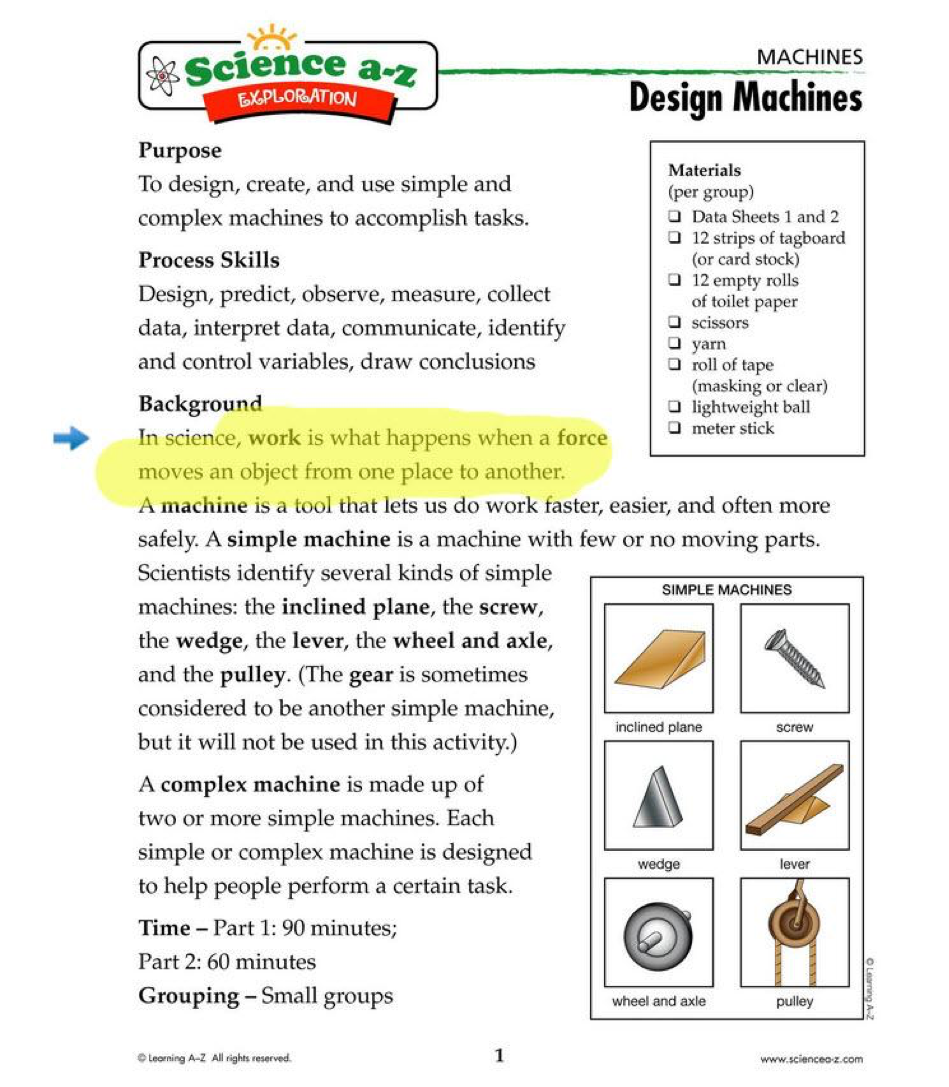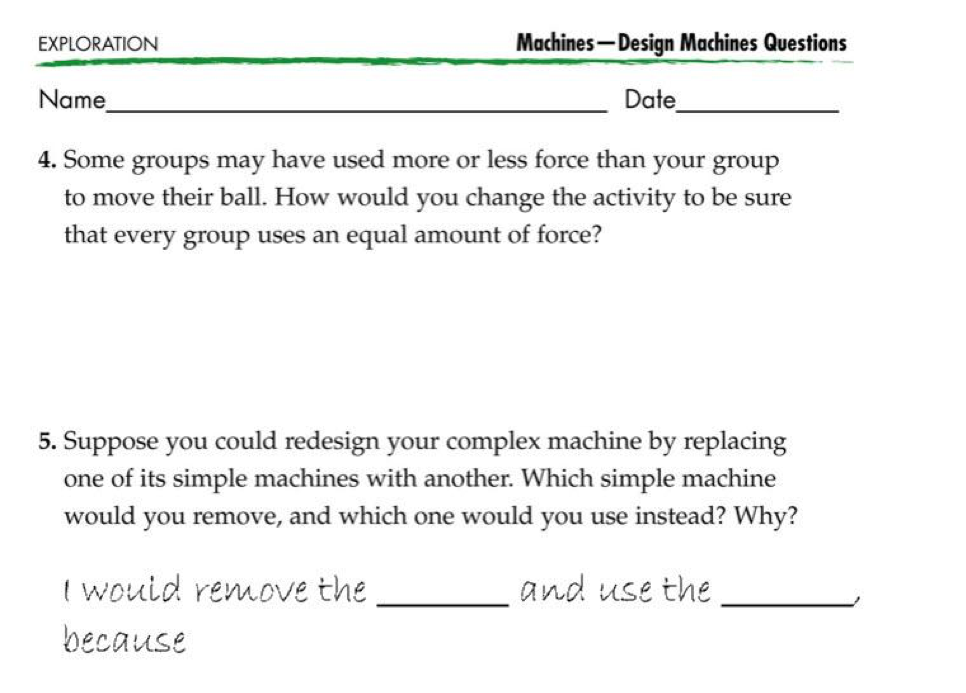Science A-Z provides activities and resources that help teachers develop content knowledge and process skills. Process Activities allow students hands-on experience and can be used in conjunction with content Nonfiction Books, Quick Reads, and Science Videos to fully develop important science concepts.
Design Machines is a Grade 3–4 Process Activity that we’re using as an example to show you how to bring inquiry into the classroom. This activity asks students to use basic materials to create simple machines that can move a lightweight ball. Students then combine their simple machines to create a complex machine.
Create Background Knowledge
Go to: Physical Science > Grades 3–4 > Machines
- Print the Simple and Complex Machines Nonfiction Book in low, mid and high reading levels as needed for your students.
- Have students read the book independently or as a class.
- Allow students to listen to the eBook as a station activity or as homework.
- Post the Simple Machines Science Diagram at your science stations, or use a poster maker for a large reference throughout the unit. Go to: Physical Science > Grade 3–4 > Machines > Supporting Materials > Comprehension Support > Science Diagram
Prepare for the Activity
- Download the Process Activities Material List All 3–4 Units to see a list of all the materials you’ll need for the activity.
- This particular activity requires toilet paper rolls. A week prior to your activity, you can send a letter home to parents requesting students bring in the rolls, or you can ask your custodial staff for help!
- Review the Design Machines Process Activity PDF and take a look at the Teaching Tips, which offer great ideas for set-up and extension activities.
- Make copies of the Process Activity worksheets.
Get Started
- Each Process Activity comes complete with Purpose and Background sections. Use the projectable version of the Process Activity to review as a class or include the section in your student copies and allow students to highlight important words and concepts.

- Read the directions for the activity as a class and check for understanding.
Make It Your Own
- Provide sentence starters and/or bullets on the student data sheets and questions. This step is helpful for classes that are new to science inquiry, and can be a great scaffold for special education or for English language learners.

- Cover the Sample Designs section, if you’re interested in making the activity more difficult.
- Review the Process Activity’s Extensions and Variations to find ways to extend the activity and have students apply their knowledge. For example, once you’ve completed the activity, you can revisit it using a marble instead of a ball, to see how the heavier mass interacts with the simple machines.
Classroom Management Tips:
- If your students are new to science activities, ask them to translate the procedures into a Sequence of Events graphic organizer and then review as a class. This will help ensure your students understand the directions.
- Break the activity down into smaller sections and use a projected timer to give students frequent accountability checks.
- Make it a competition by presenting a prize for the “winners” of Part 2: Designing a Complex Machine.
Extend the Learning
- Ask students to write a detailed summary of the activity, to solidify understanding and bring writing into your science instruction.
- Have students watch A Rube Goldberg Machine (a Kids A-Z video) and ask students to identify the simple machines.
- Provide the Rube Goldberg Quick Read and have the students complete the Brain Check activity to design their own Rube Goldberg Machine.
Great Work!
Be sure to check out all the other great videos on Kids A-Z and try other Science A-Z activities with your classroom!



